
Aug 13
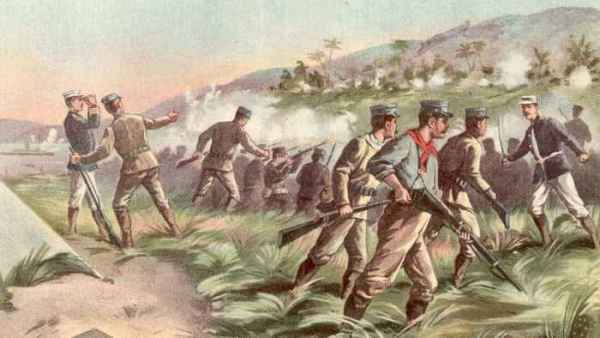
1898 Spanish-American War: American commanders, unaware that a cease fire had been signed between Spain and the United States on the previous day, capture the city of Manila from the Spanish. Note: This battle marks the end of Filipino-American collaboration, as Filipino forces are prevented from entering the captured city of Manila. This is an action which is deeply resented by the Filipinos, and leads directly to the Philippine-American War. (Brands)
[See: Countdown to Infamy: Timeline to Pearl Harbor.]
1902 Birth: Felix Wankel: German engineer and inventor; Wankel rotary-piston engine. Wankel was born in Lahr, Germany, in the upper Rhine Valley. Since his mother was widowed in World War I, Wankel received no university education or even an apprenticeship. However he was able to teach himself technical subjects and conceived the idea of the Wankel engine in 1924. In the 1930's, he had a disagreement with Adolf Hitler, and was imprisoned by the Nazis for some months. During World War II, he developed seals and rotary valves for German air force aircraft and navy torpedoes. After the war, he was imprisoned by the Allies for some months, his laboratory was closed, his work confiscated, and he was prohibited from doing more work.
1915 World War I: List Regiment: Gefreiter Adolf Hitler's 16 Reserve Infantry Regiment continue to occupy a position at Fromelles—pictured above in a drawing by Hitler—on a level field with water channels, willow trees and willow stalks; in the distance towards the enemy lines lies an insignificant wood with barbed wire entanglements. Under the direction of their defense-minded commander, Lieutenant General Gustav Scanzoni von Lichtenfels, the regiment works ceaselessly day and night to further fortify their position at Fromelles while fighting off repeated assaults by the enemy. [For further details, Click here.] 1916 World War I: List Regiment: Gefreiter Adolf Hitler endures trench warfare in Flanders (Artois) with 3 Company, 16 Reserve Infantry Regiment. [For further details, Click here.] 1917 World War I: List Regiment: (July 22-September 8): Dispatch Runner Gefreiter Adolf Hitler serves at the front with 3 Company, 16 Bavarian Reserve Infantry Regiment during Phase 2 operations in Flanders. Most of their time in the trenches gas masks are worn, while English bombers attack, and tanks—a new terror witnessed for the very first time by most—attempt to advance over a long front through seas of mud. [For further details, Click here.] 1918 World War I: German crown council at Spa:
On this day in 1918, five days after an Allied attack at Amiens, France, leads German commander Erich Ludendorff to declare "the black day of the German army," Kaiser Wilhelm II of Germany summons his principal political and military leaders to a crown council at Spa, a resort town in Belgium, to assess the status of the German war effort during World War I.
On August 11, after the Allied victory at Amiens kicked off a new Allied offensive on the Western Front, Ludendorff and Paul von Hindenburg, chief of the German army's general staff, told the new naval chief, Admiral Reinhardt Scheer, that Germany's only hope to win the war was through submarine warfare. "There is no more hope for the offensive," the downtrodden Ludendorff told a staff member on August 12. "The generals have lost their foothold."
At the crown council assembled on August 13-14 by the Kaiser at Spa, where the German High Command had its headquarters, Ludendorff recommended that Germany initiate immediate peace negotiations. Ludendorff failed, however, to present the true extent of the military's disadvantage on the battlefield; instead, he blamed revolt and anti-war sentiment on the home front for the military's inability to continue the war effort indefinitely. Meanwhile, the chief military adviser to Austrian Emperor Karl I informed Wilhelm that Austria-Hungary could only continue its participation in the war until that December. Though the Kaiser thought it advisable to seek an intermediary to begin peace negotiations, his newly appointed foreign minister, Paul von Hintze, refused to take such an approach until another German victory on the battlefield had been achieved. Hintze, working on suppressing discontent and rebellion within the German government, told party leaders the following week that "there was no reason to doubt ultimate victory. We shall be vanquished only when we doubt that we shall win."
Meanwhile, on the battlefront in Flanders, Crown Prince Rupprecht of Bavaria, one of the German army's most senior commanders, wrote of his own doubt to Prince Max of Baden (the Kaiser's second cousin, who would become chancellor of Germany the following October): "Our military situation has deteriorated so rapidly that I no longer believe we can hold out over the winter; it is even possible that a catastrophe will come earlier . . . . The Americans are multiplying in a way we never dreamed of . . . . At the present time there are already thirty-one American divisions in France." The Allied commanders, for their part, pushed their troops forward on the Western Front and made aggressive preparations for future offensives in 1919, unaware that victory would come before the year was out. (History.com)
1920 Polish-Soviet War: Battle of Warsaw begins. Note: The Battle of Warsaw was fought from 13 to 25 August 1920 as Red Army forces commanded by Mikhail Tukhachevski approach the Polish capital of Warsaw and nearby Modlin Fortress. The Red Army is defeated.
1923 Weimar: Gustav Stresemann becomes Chancellor of Germany:
In 1918 Stresemann formed the German People's Party. After Germany's defeat Stresemann was sympathetic to the Freikorps and welcomed the defeat of the socialists and communists in the German Revolution. However, he became increasingly concerned by the use of violence of the right-wing groups and after the murders of Matthias Erzberger and Walther Rathenau, Stresemann decided to argue in favor of the Weimar Republic.
With the support of the Social Democratic Party Stresemann became chancellor of Germany in 1923. He managed to bring an end to the passive resistance in the Ruhr and resumed payment of reparations. He also tackled the problem of inflation by establishing the Rentenbank.
Stresemann was severely criticized by members of the Social Democratic Party and Communist Party over his unwillingness to deal firmly with Adolf Hitler and other Nazi leaders after the failure of the Beer Hall Putsch. Later that month the socialists withdrew from Stresemann's government and he was forced to resign as chancellor.
1932 Weimar:
Repeated conferences are held between Hitler, von Hindenburg, and von Papen. Hitler is offered the Vice-Chancellorship and the post of Prussian Minister of the Interior. Hitler demands the post that Mussolini had after his march on Rome. He requests also three days in which the streets will be thrown open to the SA. Hindenburg refuses.
Formal talks begin between Hitler, Bruening, and the Catholic Center Party. The meetings drag on for weeks. (THP)
1934 Völkishness: Wewelsburg castle in Westphalia is officially taken over by Himmler and the SS.
The focal point of Wewelsburg, evidently owing much to the legend of King Arthur and the Knights of the Round Table, was a great dining hall with an oaken table to seat twelve picked from the senior Gruppenfuehrers. The walls were to be adorned with their coats of arms. Underneath this dining hall there was kept a so-called "realm of the dead", a circular well in which these coats of arms would be burnt and the ashes worshipped after the "knight" had died. (There are tales of Himmler using the severed heads of deceased SS officers to communicate with ascended masters.) In addition to this, each knight had his own room, "decorated in accordance with one of the great ancestors of Aryan majesty." Himmler's own room was dedicated to a Saxon King Henry the Fowler, with whose ghost Himmler sometimes conversed.
1937 Languages: The German Ministry of Education orders all Germans knowing a foreign language to register with the government.
1938 The Wehrmacht stages large-scale military maneuvers:
In spite of the presence of Lord Runciman as head of an unofficial British mission in Czechoslovakia, Germany started in August to mobilize her army to the strength of one million men, to hold army maneuvers not far distant from the Czechoslovak border, and to rush the building of most modern and impregnable fortifications along her Western frontier.
1939 Italy: Ciano returns to Rome, disgusted at the attitudes of Ribbentrop and Hitler. "They have betrayed us and lied to us. Now they are dragging us into an adventure which we do not want and which may compromise the regime and the country as a whole." (THP) 1940 Various:
Church and Reich: Goebbels issues orders to the Gauleiters to organize memorial ceremonies for fallen soldiers in order to overcome the influence and activities of the churches in this sphere. Until now, Goebbels says, certain restraints had had to be observed. Now, after the victorious conclusion of the war with France, the offensive can again be taken. (THP)
World War II: The Battle of Britain escalates:
On this day in 1940, German aircraft begin the bombing of southern England, and the Battle of Britain, which will last until October 31, escalates.
The Germans called it "the Day of the Eagle," the first day of the Luftwaffe's campaign to destroy the RAF, the British Royal Air Force, and knock out British radar stations, in preparation for Operation Sea Lion, the amphibious invasion of Britain. Almost 1,500 German aircraft took off the first day of the air raid, and 45 were shot down. Britain lost 13 fighters in the air and another 47 on the ground. But most important for the future, the Luftwaffe managed to take out only one radar station, on the Isle of Wight, and damage five others. This was considered more trouble than it was worth by Herman Goering, commander of the Luftwaffe, who decided to forgo further targeting of British radar stations because "not one of those attacked so far has been put out of operation."
Historians agree that this was a monumental mistake on the part of the Germans. Had Goering and the Luftwaffe persisted in attacking British radar, the RAF would not have been able to get the information necessary to successfully intercept incoming German bombers. "Here, early in the battle, we get a glimpse of fuddled thinking at the highest level in the German camp," comments historian Peter Fleming. Even the Blitz, the intensive and successive bombing of London that would begin in the last days of the Battle of Britain, could not compensate for such thinking. There would be no Operation Sea Lion. There would be no invasion of Britain. The RAF would not be defeated. (History.com) 1941 Church & Reich: From a letter from the Bishop of Limburg to the Reich Minister of Justice:
About 8 kilometers from Limburg, in the little town of Hadamar, on a hill overlooking the town, there is an institution which had formerly served various purposes and of late had been used as a nursing home; this institution was renovated and furnished as a place in which, by consensus of opinion, the above-mentioned euthanasia has been systematically practiced for months, approximately since February 1941. The fact has become known beyond the administrative district of Wiesbaden, because death certificates from a Registry Hadamar Moenchberg are sent to the home communities . . . . Several times a week buses arrive in Hadamar with a considerable number of such victims. School children of the vicinity know this vehicle and say, 'There comes the murder box again.' After the arrival of the vehicle, the citizens of Hadamar watch the smoke rise out of the chimney and are tortured with the ever-present thought of the miserable victims, especially when repulsive odors annoy them, depending on the direction of the wind. The effect of the principles at work here are: Children call each other names and say, 'You're crazy; you'll be sent to the baking oven in Hadamar.' Those who do not want to marry or find no opportunity say, 'Marry, never! Bring children into the world so they can be put into the bottling machine!' You hear old folks say, 'Don't send me to a state hospital! After the feeble-minded have been finished off, the next useless eaters whose turn will come are the old people' . . . . The population cannot grasp that systematic actions are carried out which, in accordance with Paragraph 211 of the German criminal code, are punishable with death! Officials of the Secret State Police, it is said, are trying to suppress discussion of the Hadamar occurrences by means of severe threats. In the interest of public peace this may be well intended, But the knowledge and the conviction and the indignation of the population cannot be changed by it; the conviction will be increased with the bitter realization that discussion is prohibited with threats but that the actions themselves are not prosecuted under penal law.
1942 Various:
Manhattan Project: Holocaust: The Swiss police begin turning back Jewish refugees who manage to cross into Switzerland. (THP)
1945 World War II: An air raid on Tokyo destroys scores of Japanese aircraft while still on the ground.
1946 Nuremberg Tribunal: Herr Boehm: Do you know that Seger accused you of murder? 1948 Record day for the Berlin Airlift:
Responding to increasing Soviet pressure on western Berlin, U.S. and British planes airlift a record amount of supplies into sections of the city under American and British control. The massive resupply effort, carried out in weather so bad that some pilots referred to it as "Black Friday," signaled that the British and Americans would not give in to the Soviet blockade of western Berlin.
Berlin, like all of Germany, was divided into zones of occupation following World War II. The Russians, Americans, and British all received a zone, with the thought being that the occupation would be only temporary and that Germany would eventually be reunited. By 1948, however, Cold War animosities between the Soviets and the Americans and British had increased to such a degree that it became obvious that German reunification was unlikely. In an effort to push the British and Americans out of their zones of occupation in western Berlin, the Soviets began to interfere with road and rail traffic into those parts of the city in April 1948. (Though divided into zones of occupation, the city of Berlin was geographically located entirely within the Russian occupation area in Germany.) In June 1948, the Russians halted all ground and water travel into western Berlin. The Americans and British responded with a massive airlift to supply the people in their Berlin zones of occupation with food, medicine, and other necessities. It was a daunting logistical effort, and meant nearly round-the-clock flights in and out of western Berlin. August 13, 1948, was a particularly nasty day, with terrible weather compounding the crowded airspace and exhaustion of the pilots and crews. Nevertheless, over 700 British and American planes landed in western Berlin, bringing in nearly 5,000 tons of supplies.
The joint British-American effort on what came to known as "Black Friday" was an important victory for two reasons. First and foremost, it reassured the people of western Berlin that the two nations were not backing down from their promise to defend the city from the Soviets. Second, it was another signal that the Soviet blockade was not only unsuccessful but was also backfiring into a propaganda nightmare. While the Soviets looked like bullies and heartless despots for their efforts to starve western Berlin into submission, the British and Americans--flaunting their technological superiority--were portrayed as heroes by the worldwide audience. (History.com)
1961 Berlin is divided:
Shortly after midnight on this day in 1961, East German soldiers begin laying down barbed wire and bricks as a barrier between Soviet-controlled East Berlin and the democratic western section of the city.
After World War II, defeated Germany was divided into Soviet, American, British and French zones of occupation. The city of Berlin, though technically part of the Soviet zone, was also split, with the Soviets taking the eastern part of the city. After a massive Allied airlift in June 1948 foiled a Soviet attempt to blockade West Berlin, the eastern section was drawn even more tightly into the Soviet fold. Over the next 12 years, cut off from its western counterpart and basically reduced to a Soviet satellite, East Germany saw between 2.5 million and 3 million of its citizens head to West Germany in search of better opportunities. By 1961, some 1,000 East Germans--including many skilled laborers, professionals and intellectuals--were leaving every day.
In August, Walter Ulbricht, the Communist leader of East Germany, got the go-ahead from Soviet Premier Nikita Khrushchev to begin the sealing off of all access between East and West Berlin. Soldiers began the work over the night of August 12-13, laying more than 100 miles of barbed wire slightly inside the East Berlin border. The wire was soon replaced by a six-foot-high, 96-mile-long wall of concrete blocks, complete with guard towers, machine gun posts and searchlights. East German officers known as Volkspolizei ("Volpos") patrolled the Berlin Wall day and night.
Many Berlin residents on that first morning found themselves suddenly cut off from friends or family members in the other half of the city. Led by their mayor, Willi Brandt, West Berliners demonstrated against the wall, as Brandt criticized Western democracies, particularly the United States, for failing to take a stand against it. President John F. Kennedy had earlier said publicly that the United States could only really help West Berliners and West Germans, and that any kind of action on behalf of East Germans would only result in failure.
The Berlin Wall was one of the most powerful and iconic symbols of the Cold War. In June 1963, Kennedy gave his famous "Ich bin ein Berliner" ("I am a Berliner") speech in front of the Wall, celebrating the city as a symbol of freedom and democracy in its resistance to tyranny and oppression. The height of the Wall was raised to 10 feet in 1970 in an effort to stop escape attempts, which at that time came almost daily. From 1961 to 1989, a total of 5,000 East Germans escaped; many more tried and failed. High profile shootings of some would-be defectors only intensified the Western world's hatred of the Wall.
Finally, in the late 1980s, East Germany, fueled by the decline of the Soviet Union, began to implement a number of liberal reforms. On November 9, 1989, masses of East and West Germans alike gathered at the Berlin Wall and began to climb over and dismantle it. As this symbol of Cold War repression was destroyed, East and West Germany became one nation again, signing a formal treaty of unification on October 3, 1990. (History.com)
1969: President Nixon, the Apollo 11 astronauts, and a plethora of invited guest attend a televised celebration at the Century Palace Hotel in Los Angeles. 2004 Death: Julia Child: American chef and television personality. Civic-minded, she volunteered with the American Red Cross and, after the bombing of Pearl Harbor in 1941, joined the Office of Strategic Services (OSS) after being turned down by the United States Navy for being too tall (6'2"). For a year, she worked at the OSS Emergency Sea Rescue Equipment Section in Washington, DC, where she was a file clerk and also helped in the development of a shark repellent. In 1944 she was posted to Kandy, Ceylon (now Sri Lanka), where she met her future husband, a high-ranking OSS cartographer, and later to China, where she received the Emblem of Meritorious Civilian Service as head of the Registry of the OSS Secretariat.
Edited by Levi Bookin (Copy editor) Click to join 3rdReichStudies Disclaimer: This site includes diverse and controversial materials--such as excerpts from the writings of racists and anti-Semites--so that its readers can learn the nature and extent of hate and anti-Semitic discourse. It is our sincere belief that only the informed citizen can prevail over the ignorance of Racialist "thought." Far from approving these writings, this site condemns racism in all of its forms and manifestations. 
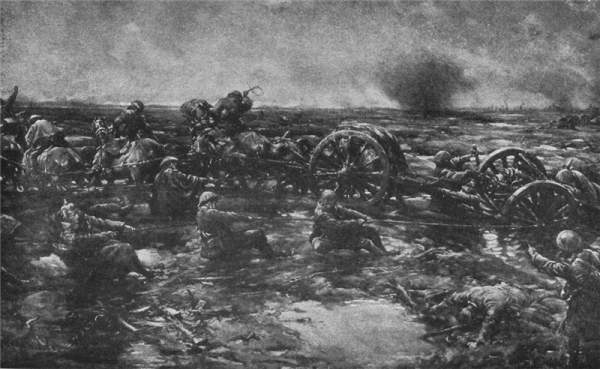
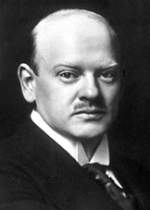
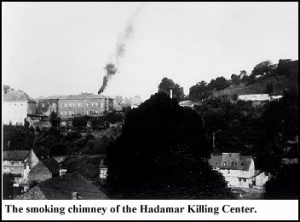
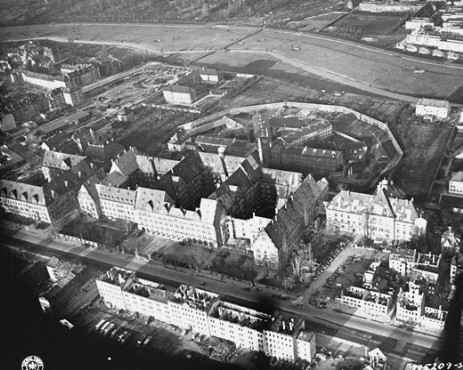
Werner Schaefer: Yes, I know that.
Herr Boehm: Was this matter cleared up beyond doubt?
Werner Schaefer: Seger accused me of being responsible for the shooting and killing of two internees. This case was cleared up beyond all doubt, so satisfactorily indeed that when this book on my instructions was read to the internees in the camp, one of the persons who, as Seger alleged, had been shot, suddenly stood up and reported that he was alive and well, while the other one was already with his family, having been released; a clear refutation, therefore, by the two men themselves who were said to have been shot. 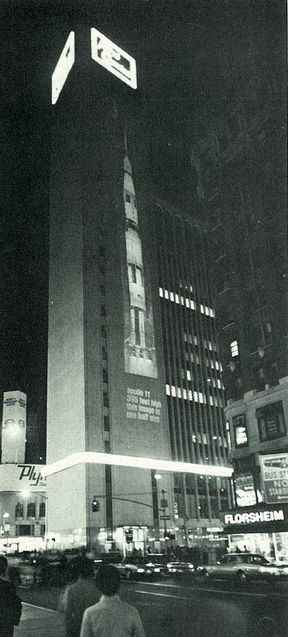
levi.bookin@gmail.com










Fair Use Notice: This site may contain copyrighted material the use of which has not always been specifically authorized by the copyright owner. We are making such material available in our efforts to advance understanding of historical, political, human rights, economic, democracy, scientific, environmental, and social justice issues, etc. We believe this constitutes a "fair use" of any such copyrighted material as provided for in section 107 of the US Copyright Law. In accordance with Title 17 U.S.C. Section 107, the material on this site is distributed without profit to those who have expressed a prior interest in receiving the included information for research and educational purposes. If you wish to use copyrighted material from this site for purposes of your own that go beyond 'fair use', you must obtain permission from the copyright owner.
Please Note: The list-owner and moderators of 3rdReichStudies are not responsible for, and do not necessarily approve of, the random ads placed on our pages by our web server. They are unfortunately, the price one pays for a 'free' website.



